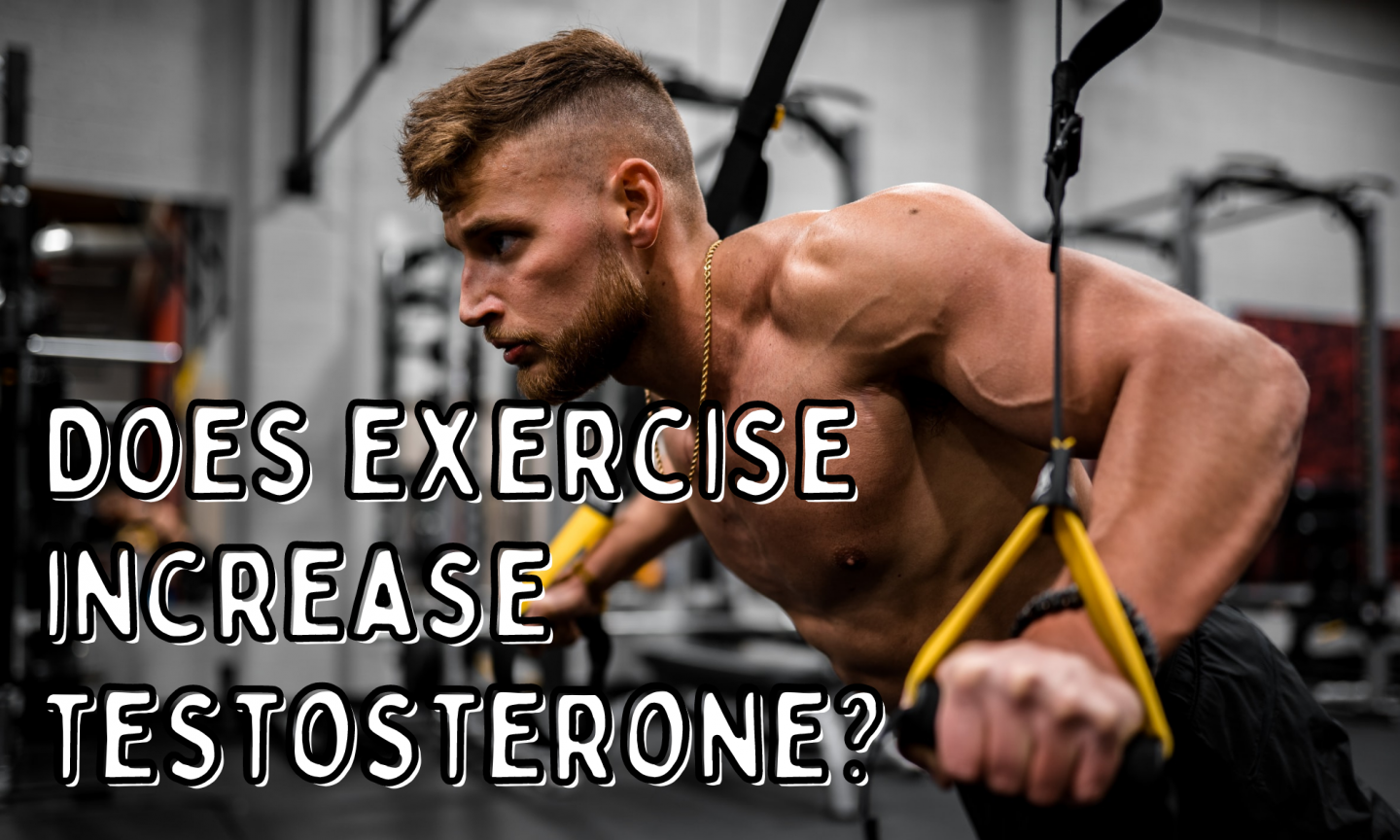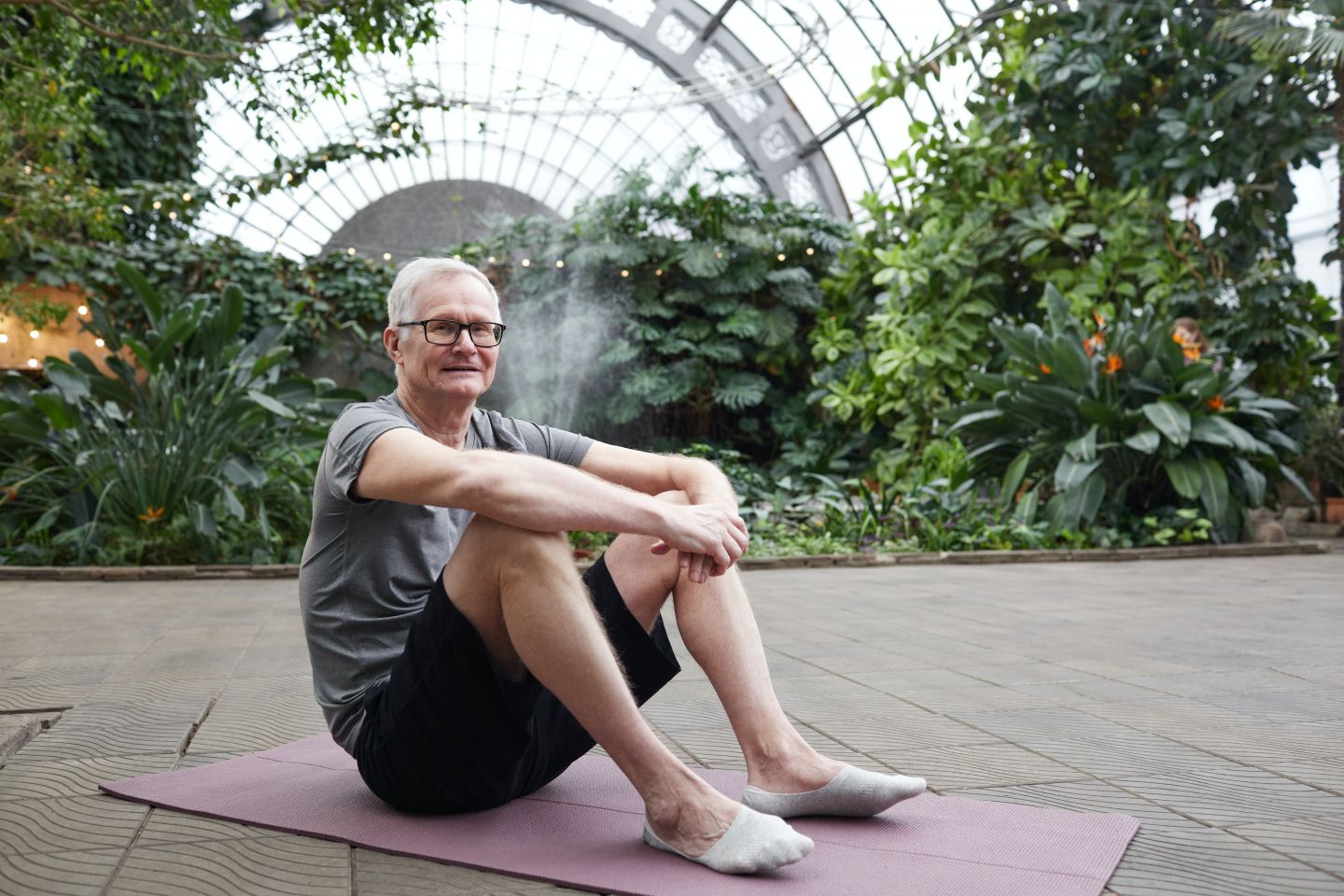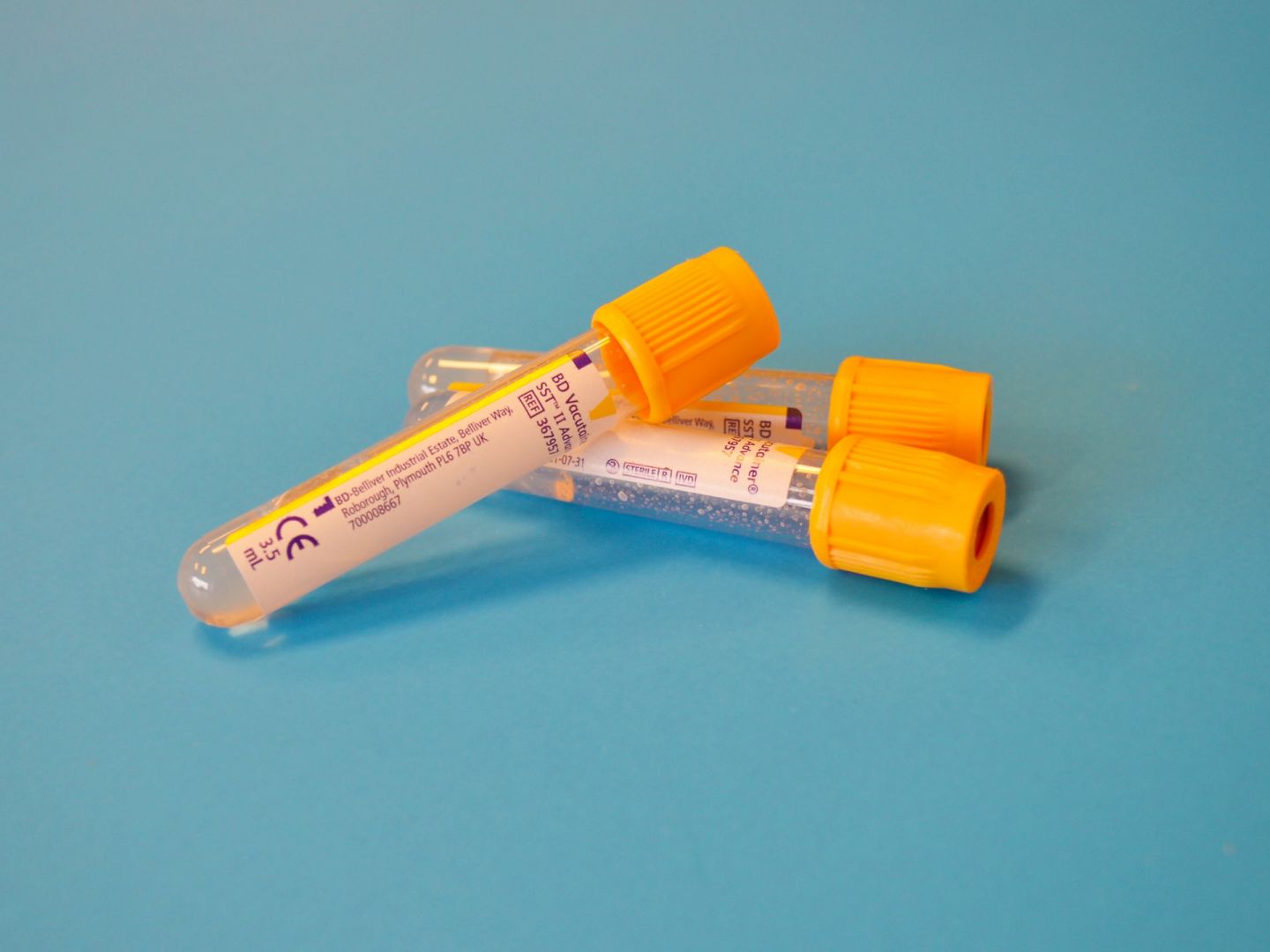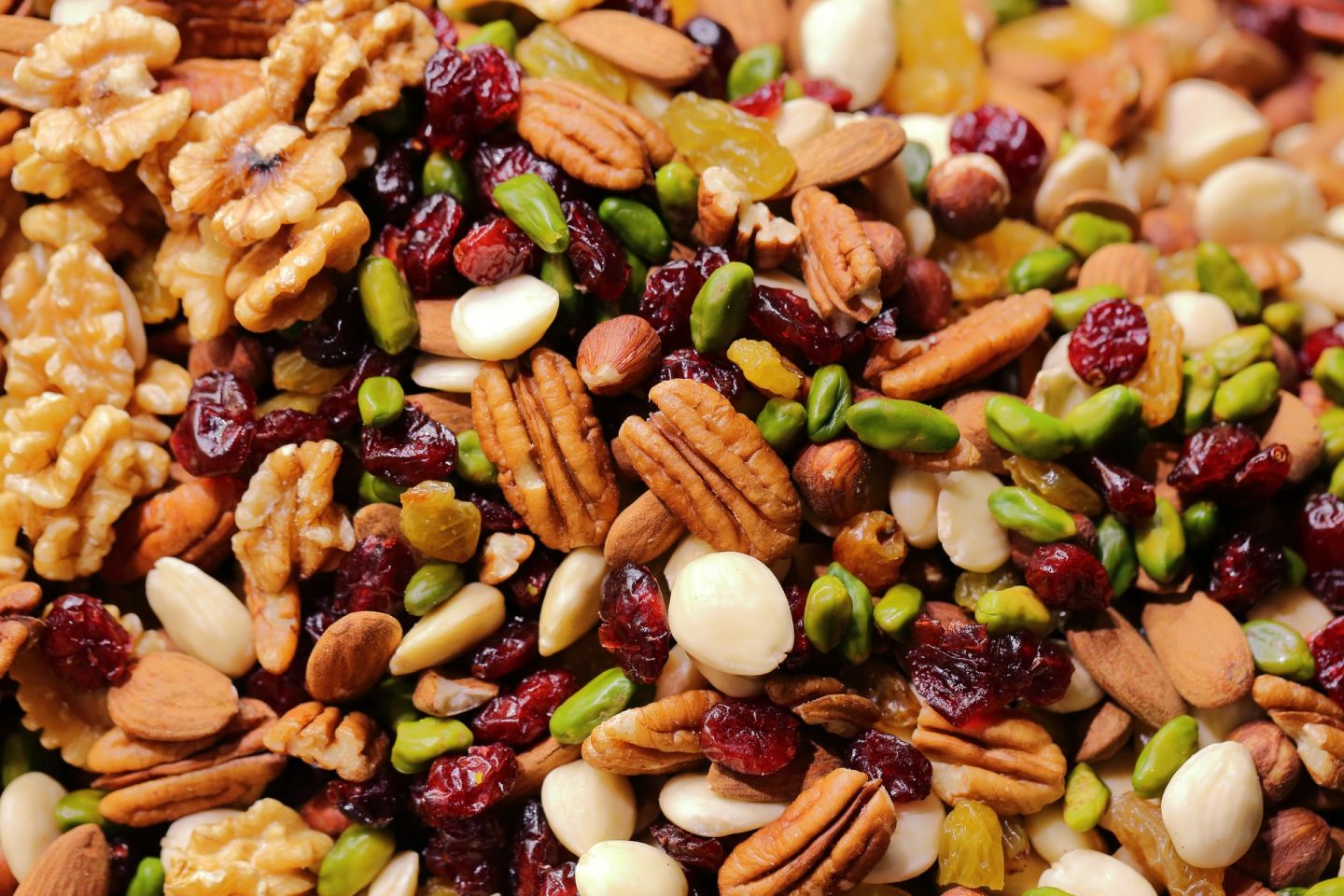Does Exercise Increase Testosterone?
15th Jul 2022
Chris Nicklin is a certified Personal Trainer with over 7 years' experience, and the owner of Nxtep Personal Training. Chris qualified from Edge Hill University with a Bachelor of Science (BSc) degree in Sports Coaching and Performance Development, and has delivered over ten thousand one-to-one Personal Training sessions.

The short answer is yes, exercise can increase testosterone levels – in both men and women. However, it is not that simple! In this article I will explain why, the science behind it, and also what you can do to increase testosterone levels naturally.
What is testosterone?
Testosterone is a growth hormone made by both males and females. In males, it’s made in the testes in the testicular tissue, and is known as the male sex hormone. In females, it’s made in another type of tissue called adrenal tissue. However, men produce a lot more and the hormone plays a bigger role in men’s health.
How does testosterone affect the body?
Testosterone is responsible for many of the physical changes males experience during puberty, like growth spurts, deepening of the voice, development of the penis, testes and body hair. In adult life it also affects things like your:
- Red blood cells level
- Fertility
- Libido (Sex drive)
- Lean muscle mass
Notably, for those interested in the link between testosterone levels and exercise, it also helps to build muscle and bone strength.
What are the symptoms of low testosterone?
The symptoms of low testosterone depend on age among other factors, and can include the following physical symptoms (although these can all be caused by other things too):
- Loss of muscle mass
- Osteoporosis (weakening of bones)
- Weight gain
- Loss of body hair
- Gynecomastia (development of male breasts)
- Reduced sex drive
- Erectile dysfunction
- Infertility
- Fatigue
In addition to mental effects such as:
- Moodiness / irritability
- Depression
- Loss of concentration
- Memory problems
The first item in the list above is obviously of particular interest if you are reading this article – the anabolic effects of testosterone on muscle mass and strength. Testosterone attaches to receptors on the surface of muscle cells and increases protein synthesis during resistance training to rebuild muscle following injury. So essentially, testosterone increases the amount of growth hormone produced by the body in response to exercise.
Additionally, investigations have indicated that the prevalence of osteoporosis in testosterone deficient guys is twice that of testosterone-normal males. Testosterone decreases ‘osteoclastic activity’, which is the reduction in bone density, and enhances ‘osteoblastic activity’, which is responsible for bone development.
What causes low testosterone?

#A variety of factors may contribute to low testosterone (scientifically known as ‘male hypogonadism’ but commonly referred to as “low T”), such as poor sleep, excessive alcohol intake and heredity genetics. However, there are other reasons which have a far bigger impact on T hormone levels:
Age
This is the most common reason for low testosterone. Infants and children under the age of 12 have extremely low blood levels. When boys reach puberty, at the ages of 12 or 13, testosterone levels skyrocket. This is usually when you begin to see growth spurts and an increase in muscular mass, among other changes mentioned above.
This increase in testosterone lasts until about the age of 30. From then on it usually remains the same or begins to gradually decline – by approximately 1% each year. Most guys over the age of 50 or 60 have already begun to lose testosterone. It continues to fall in elderly males.
Obesity
Studies have shown a correlation between being overweight and low testosterone. One piece of research states that “the acute effect of different resistance exercise orders on serum testosterone concentrations in untrained normal weight and obese men. Although in both groups T-Testo increased acutely post exercise, the increase was higher in the lean individuals, suggesting an obesity-associated blunting in hormonal changes with exercise.”
Illness
When individuals are unwell, testosterone levels might drop, especially in people over the age of 50. AIDS, renal illness, cirrhosis of the liver, and type II diabetes are all known to have an influence on T levels. In fact, any kind of chronic condition may drop your levels.
How to know if you have low testosterone?

A blood test is the most accurate technique to determine if you have low testosterone. You may have this test performed by a healthcare professional or you can even test your levels at home on your own. It may be a good idea to do a an at-home test first, and then if that tells you that your levels are actually low, consult with your healthcare practitioner about potential options after that.
Adult men with healthy testosterone levels should have levels above 10 nmol/L (nanomoles per litre). When your levels go below that level, you may have a testosterone deficiency.
Your doctor may recommend beginning therapy with medication or exogenous hormones, but before that, they will usually want to test your testosterone level several times over the period of six months or so, to determine real deficiency.
Can you have too much testosterone?
Yes, but surprisingly, having too much naturally-occurring testosterone is not a common problem among men, despite what society might have us believe.
But it can be hard to define what is an effect of too much testosterone and what is simply due to a person’s natural temperament, or more topical factors. Additionally, blood levels of testosterone vary dramatically over time and even during the course of a day.
Interestingly, the majority of what we know about extremely high testosterone levels in males comes from sportsmen who take illegal anabolic steroids, testosterone, or substances similar to testosterone to boost muscle growth and athletic performance.
What are the symptoms of excess testosterone?

The following physical issues are connected with unusually high testosterone levels in men, some of which may be surprising as you may in fact associate them more with low testosterone:
- Acne
- Fluid retention with swelling of the legs and feet
- Weight gain
- High blood pressure
- High cholesterol
- Higher risk of Liver disease
- Heart damage and higher risk of heart attack
- Lower sperm counts
- Shrinking of the testes
- Impotence
- Prostate enlargement and trouble urinating
- Headaches
- Higher risk of blood clots
- Stunted growth in adolescents
In addition to mental effects such as:
- Insomnia
- Out of character aggressive behavior
- Mood swings
- Euphoria
- Irritability
- Impaired judgment
- Paranoia & delusions
Do testosterone boosters or supplements work?
You may have seen supplements which apparently boost testosterone for sale, particularly online.
However, there is a lot of debate as to whether these actually work or not. There are studies which appear to show that *some* of these products have increased testosterone levels, but the US Food & Drink Association (FDA) has also carried out research and has stated that “The benefit and safety of these medications have not been established for the treatment of low testosterone levels due to aging, even if a man’s symptoms seem related to low testosterone” and also that there is an increased risk of stroke and heart attack from taking these kinds of ‘boosters’.
Personally, I believe that following a nutritious diet, getting plenty of good quality sleep, and continuously exercising for a long length of time is a much more effective and safer ways to boost your testosterone.
Sexual activity does not boost long-term testosterone levels.
Can I get Testosterone therapy?
Testosterone replacement therapy is available, but it is normally only provided for the treatment of delayed male puberty, low testosterone production due to testicular, pituitary, or hypothalamic function failure, and some incurable female breast cancers.
However, testosterone therapy may be able to relieve symptoms in men with very low levels of active (free) testosterone, such as:
- Low energy & weakness
- Depression
- Erectile dysfunction
- Cognition problems
However, many men with healthy testosterone levels have comparable symptoms, making a causal link between testosterone levels and symptoms difficult to establish. As a consequence, there is considerable debate regarding which men should be given testosterone supplements.
Testosterone treatment may be given for women who have low testosterone levels and symptoms associated with testosterone deficiency but it’s unclear if low levels without symptoms are significant – so the side effects may exceed the benefits.
Does exercise increase testosterone levels?
Yes – in men, certain types of physical activity has been shown to enhance testosterone levels in the long term. However, there are also some short-term effects, particularly after certain types of exercise (more on this later) – some workouts have been shown to enhance testosterone levels in as little as fifteen minutes, but this brief rise only lasts as long as an hour, and is greater in younger males. The effect in older men is much lesser.
Furthermore, testosterone levels are greater in the morning and decrease in the afternoon. So working out in the morning and doing certain activities that increase testosterone levels will give you a short-term boost.
The absolute implications of this boost are yet to be determined by science, although it is unlikely to make a difference in how you feel if you have low T. If you have borderline low levels, though, a regular exercise routine may be enough to get you back into the usual range.
Only consistent exercise over time, however, will boost your constant testosterone levels in the long run, in addition to the numerous other benefits such as improved heart health, increased muscle mass, weight management, and less chance of developing chronic diseases.
There is currently no evidence that exercise increases testosterone levels in women. However, there is evidence that greater testosterone levels in a woman’s body during exercise assist her train. Furthermore, testosterone promotes quicker muscle recovery, which increases muscle development.
What types of exercise increase testosterone levels?
If you have low testosterone levels, exercise may help you boost them naturally. Different sorts of exercise, however, have different impacts on the two sexes. Some quick tips below:
- Resistance and strength training and high-intensity interval training (HIIT) are proven to boost testosterone levels in men both in the short and in the long term.
- Lifting weights, especially utilising the biggest muscles in our body such as the glutes and quads are great for helping us spike our testosterone levels.
- Bodyweight exercises are great – as the more muscles you can involve, the better. So things like squats, push-ups, sit-ups and pull-ups are all excellent
- Lift heavier weights rather than larger numbers of reps
- Shorten your rest periods between reps
- Don’t overdo it – exhaustion can actually lead to a drop in testosterone
If you’re the sort of person that benefits from guidance and regime, then a personal trainer is a great option, as we will put together a bespoke personal training programme designed to achieve your personal goals – including building muscle mass and increasing testosterone.
What types of exercise decrease testosterone levels?

Cardio work such as jogging at the same speed for half an hour, is not as effective as weight training or HIIT. It is incredibly beneficial to many areas of your health, but it does not seem to increase testosterone levels in the same way.
In fact, excessive aerobic exercise may reduce testosterone levels – but I have to stress that this is quite unusual and is typically the result of overtraining to the point where your body fat is extremely low, which can then interfere with testosterone production.
Some endurance athletes such as long distance runners, experience lower testosterone levels and higher levels of a stress hormone called Cortisol which can impact your sleep, your general mood and muscle mass. Although, with endurance training, it is perhaps more likely that the training itself is responsible for the reduction in muscle mass, and the high Cortisol levels may be a result of the training.
Women can see a testosterone related benefit from resistance exercise as well, according to research, as HIIT has been shown in certain trials to lower testosterone levels. This isn’t necessarily a bad thing though, as excessive testosterone levels in women may cause acne, irregular periods and can also lead to infertility and polycystic ovarian syndrome (PCOS).
Other natural ways to keep a healthy testosterone level
Plenty of good quality sleep
Sleep deprivation may have a negative impact on the amounts of hormones and chemicals that the body need to operate properly, including testosterone.
Making sleep a priority may aid with testosterone maintenance. People should strive for 7 to 8 hours of sleep every night. Anyone who is having difficulty obtaining enough quality sleep on a regular basis should see their doctor.
Avoid stress if possible
This is always a tricky one, as no one deliberately seeks out stress, but stress raises the hormone cortisol, which regulates a number of activities, including immune response and metabolism, but it can also reduce T levels.
Try vitamin supplements
Vitamin supplements, particularly vitamin B, vitamin D, and zinc, may increase testosterone levels in those who are zinc deficient, which research has shown is linked to low T levels.
Reduce weight
As mentioned earlier, research has shown that men who carry more weight have lower levels of testosterone. So in this case, any kind of exercise can be beneficial here, including cardio or endurance as these types of exercise are great for fat loss.
Follow a balanced diet
Eating healthily has long been known to be important for sustaining testosterone levels and general health. Try to focus on a nutritious diet rich in protein, fat, and carbohydrates. See below for some great examples.
Foods That May Increase Testosterone

As mentioned above, if your T levels are low, consider following a diet rich in foods that contain nutrients important for maintaining healthy testosterone levels.
We know that nutrients such as vitamin D, magnesium, and zinc, are important for maintaining optimal testosterone levels, but there’s limited research on specific foods and their effect on testosterone metabolism.
Below then, is a comprehensive list of foods that are high in the various nutrients that we know to be important for normal testosterone levels:
- Honey
- Yoghurt
- Cocoa
- Coffee
- Cereals
- Nuts
- Seeds
- Berries
- Raisins
- Cherries
- Lemons
- Bananas
- Coconut
- Pomegranates
- Avocados
- Beans
- Spinach
- Parsley
- Asparagus
- Mushrooms
- Onions
- Ginger
- Garlic
- Oysters
- Fatty fish
- Eggs
Conclusion
While Testosterone can certainly help to increase testosterone, it has the best chance of doing so when it is part of a healthy lifestyle including a balanced diet and no excess alcohol consumption and no smoking!
If you’re struggling to improve your T levels through exercise, and if you feel like you could benefit from a personal trainer to motivate you, give me a call or send me an enquiry via the contact form and we’ll discuss a personalised training regime including a diet plan, that will help you increase your testosterone levels.
